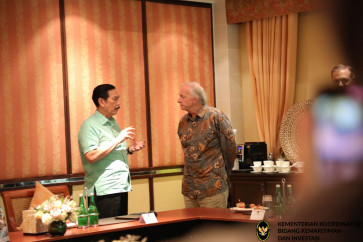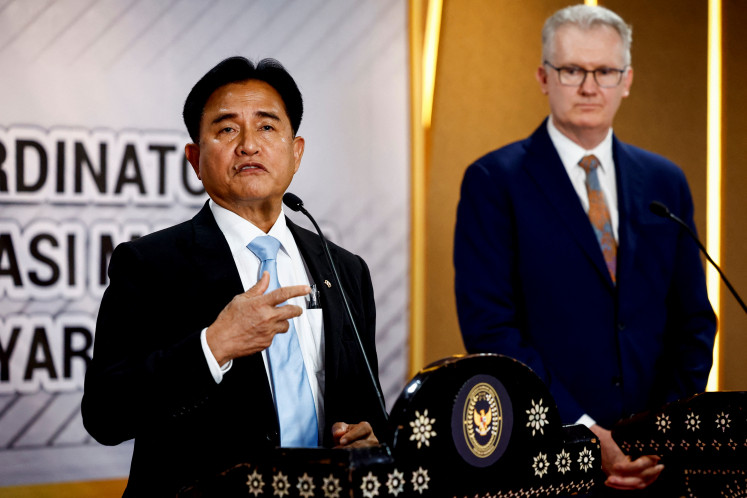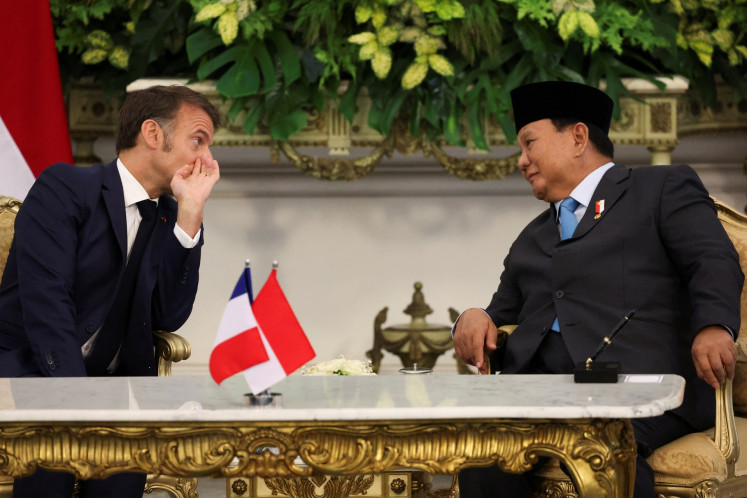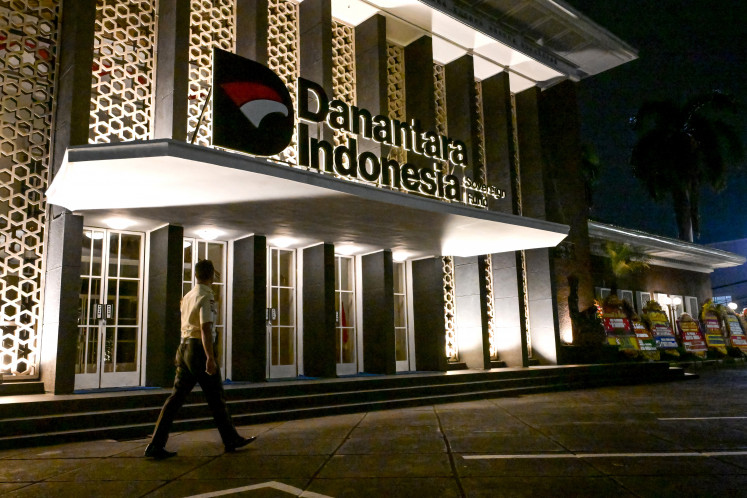Makbul Mubarak’s feature debut ‘Autobiography’ analogizes post-Soeharto power struggles
Change text size
Gift Premium Articles
to Anyone
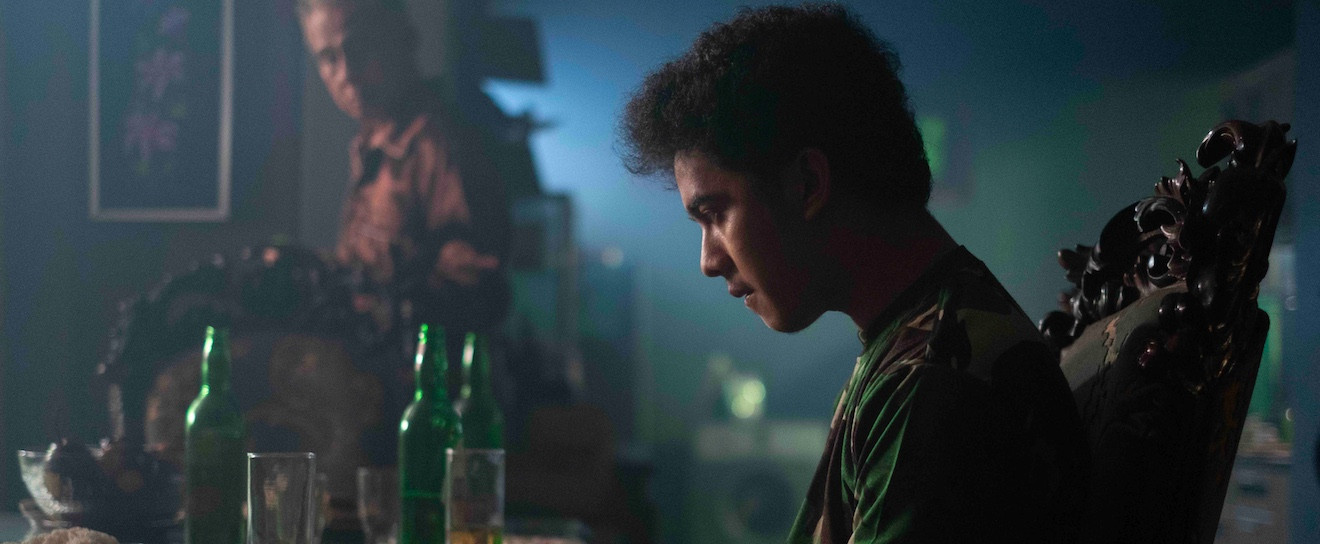
Filmmaker Makbul Mubarak explains how Autobiography relates to the New Order regime.
The Indonesian film industry experienced a strong momentum in 2021, with films such as Yuni and Seperti Dendam, Rindu Harus Dibayar Tuntas (Vengeance is Mine, All Others Pay Cash) gaining global acknowledgement with wins at international festivals.
That momentum is set to continue with relatively-new filmmaker Makbul Mubarak’s Autobiography, which is screening and making waves at various international film festivals this year.
Autobiography was born out of five years of development and pitches to international production grants. The film has been touring around the world since its premiere at the 2022 Venice International Film Festival last September. It has since been screened at the Toronto International Film Festival, the BFI London Film Festival and other global festivals. More recently, the 115-minute film took home seven Piala Citra nominations at the Indonesian Film Festival.
The film centers around Rakib (Kevin Ardilova), a young caretaker whose family has been responsible for looking after a small-town hilltop mansion for generations. Things take a mysterious turn when the original owner, General Purna (Arswendy Bening Swara) returns from the city to occupy his family residence, all the while running for district governor.
Mirroring characters
During a Q&A session after the film’s screening at the Tokyo Filmex Film Festival, Makbul said that the film title denotes three different meanings of the word “autobiography.”
In terms of the narrative, it refers to the mirroring relationship between the two main characters. Rakib first greets his employer with a polite and soft-spoken manner in which Purna returns with cold gazes. Their housekeeper/owner relationship grows into one resembling a father/son bond as the two warms up to each other.
In one scene, Rakib is dazzled when he sees Purna using his fearful presence to defend Rakib from a mob of angry civilians. Meanwhile, Purna discovers the potential of his young employee when Rakib successfully fires a target during his first clutch of a gun.
“You look just like me when I was young,” Purna utters to Rakib in one scene. The setting here juxtaposes Rakib wearing a hand-me-down army garb against the general’s gold framed family portrait.
As the story takes a violent turn, red starts to color Rakib’s world through mise-en-scènes that utilizes red in lighting, props and costume. The frequent use of the color seems to indicate the housekeeper’s guilt and Purna’s increasingly heinous teachings.
The theme of mirroring is supported through even more visuals. Cinematographer Wojciech Staroń shoots the characters through glasses, mirrors and other reflective surfaces with a 1970 Japanese lens from Kowa which the director found at a rental shop in Los Angeles, the United States.
The distorted effect produced by the old lens adds into Rakib's feeling of being suffocated under Purna’s influence.
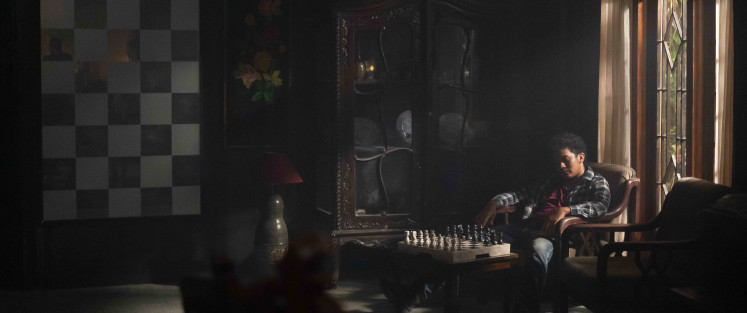
Loyalty and dilemma
The other meaning behind the title is more literal. Makbul confesses that the story is inspired by his days as a child growing up during Soeharto’s presidency. It specifically points to the director’s relationship with his parents who worked for the government.
Makbul questions the moral gray area of staying loyal to the state. “Is loyalty still honorable if and when it is pledged to something monstrous?” Makbul wrote in his director’s statement.
This internal conflict is projected through main character Rakib. Being born to a family of caretakers, Rakib’s obligation to be of service to Purna is bestowed to him by birth. Audience witnesses Rakib’s personal struggle as he is forced to pent up his anger and fear in the name of obedience. When he steps out into the public as the wicked general’s right-hand man, he feigns composure and is commended for it.
Social context is important in understanding the third meaning of Autobiography, a reflection of post-New Order Indonesia. Set in the quiet town of Bojonegoro, East Java, the politics of Purna’s election campaign and his connection to the military is a portrayal of Soeharto’s remaining influence in the country’s sphere of politics.
Traits of the former president’s charisma are found in Purna’s personality: He is confident and a smooth talker. He gets local residents to laugh along and chant with him during speeches, but his presence also brings an air of terror to those who upset him. Makbul makes a reference to Soeharto’s title “father of development” through Purna’s role in the film as a father figure to Rakib.
Autobiography addresses the irony of a public representative being disconnected from his people and living lavish lifestyles. The film conveys this notion visually and through its narrative. Purna navigates through the small town using a large black crossover car that is too big for the narrow dirt roads.
The local residents of the small town in the film struggle with power outages, at the same time Purna’s mansion remains illuminated as he indulges in karaoke parties with military generals.
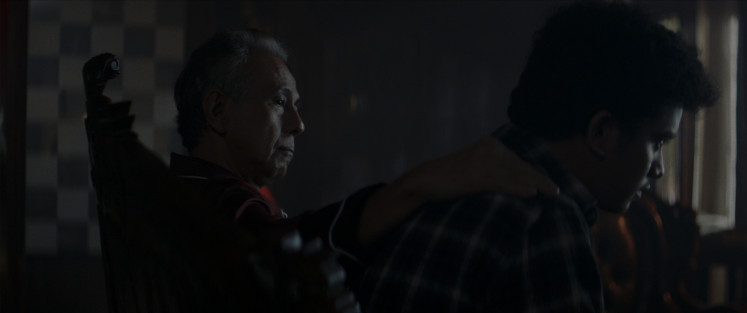
The language of film
Autobiography carries a weighty conversation about Indonesia’s historical wounds that remain in the country’s power politics. It is delivered through Staroń’s stellar cinematography and a menacing sound design by L.H. Aim Adinegara’s team, which blends together to create a moody film experience.
The editing by Filipino filmmaker Carlo Francisco Manatad keeps the film at a languid pace while still retaining its grip on the audience.
The two lead actors Kevin Ardilova and Arswendy Bening Swara provide looming presences. Makbul reveals that the two were also involved in dialogue and script development years before shooting took place.
When asked “What would it take for Indonesia to overcome this authoritative influence?” during the Tokyo screening, Makbul replied “I don’t know. When I was writing the script, I only had questions [...] So I put those questions into the cinema.”



